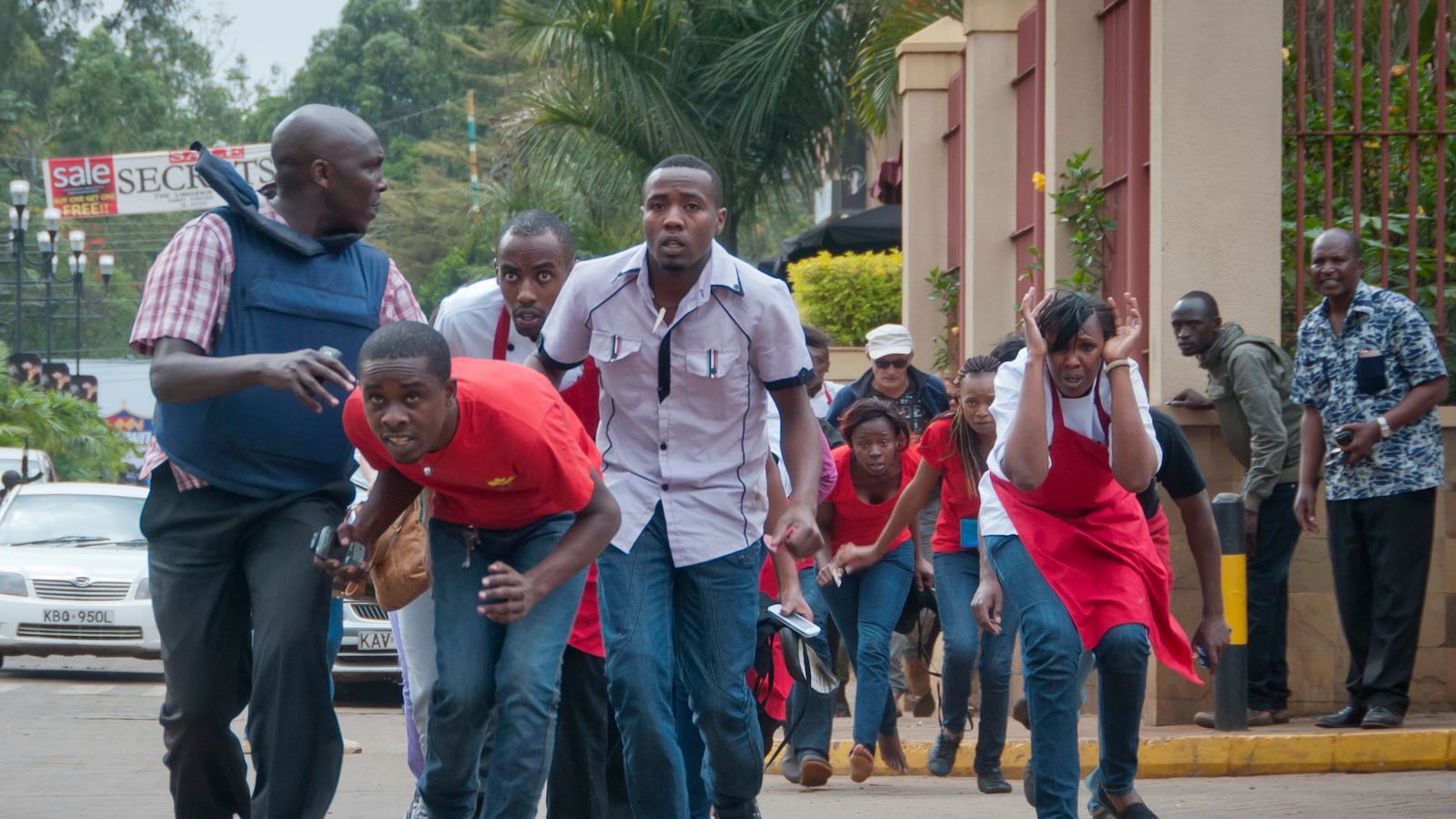Sadia Ahmed, a young presenter with a popular Kenyan radio station, was covering an Indian food cook-off on the rooftop parking lot of Nairobi’s upscale American-style Westgate Mall on Saturday when gunmen appeared suddenly and began firing into the crowd. On weekends, the parking lot doubles as a sort of fairground and playground for kids. Many of them were in the line of fire, and some, at least, are among the dead and injured in a siege that is still underway, and developing into a hostage standoff, more than 24 hours later. The Kenyan government has reported 59 people dead and 175 injured so far.

Ahmed tried to give a sense of the “horrible nightmare” that happened around her, writing in the staccato bursts of Twitter: “The vibrations from explosions. The countless gun shots. The pools of blood. The screaming children. The helpless injured,” she wrote. A picture taken of her with some kids earlier in the day shows a little girl named Neha, who was killed; another named Roshni, who clung to her in terror. Ahmed tried to protect two other children with her body. A grenade detonated behind her. One of her friends died before her eyes before the attackers moved down into the mall and she was able to escape.
The al-Shabaab group in Somalia, which is affiliated with Al-Qaeda and has been under attack from Kenyan troops on its home turf since 2011, immediately claimed responsibility. And during the first hours of the attack, it went on Twitter, too, to make sure the world would pay attention. It bragged about the action, claiming that Muslims were allowed to go free while unbelievers were not, vaunting the bravery of the killers and telling anyone following the feed to, “Stay tuned!” – until Twitter suspended the account.
Gunmen reportedly asked hostages if they could recite passages from the Quran and to name the prophet Mohamed's mother. Those who could not were either shot or continued to be held hostage.
People in Nairobi were shocked by the attack, but not surprised. “There were always threats,” says Ahmed. There have been bombings, “but gunmen with grenades was unexpected.”
The attack bears a close resemblance, in fact, to the one staged in Mumbai, India, in 2008, when gunmen from another group affiliated with al Qaeda seized luxury hotels and attacked a Jewish community center, holding the world’s attention for days in a siege that eventually cost 169 lives.
Counter-terror officials in the West have been concerned that Mumbai-style tactics could be and would be used elsewhere, and many in Nairobi believed it was just a matter of time before al-Shabaab tried some spectacular terrorist operation. Nairobi residents receive alerts and warnings from embassies on a monthly sometimes-weekly basis telling them to be vigilant. But there are limits to what can be done unless people are willing to live and work and shop in armed camps.
"Most people who follow politics are aware of the tensions in East Africa," says Jim Shanor, a Kenya-based American development specialist who speaks fluent Somali. Located in the heart of Nairobi, the mall is considered the nerve-center of the international diplomatic crowd, its patrons include embassy and Kenya government officials, NGO workers and media. "It was just a matter of time before al-Shabaab would hit a soft target like Westgate."

"Kenya has been at war with Somalia for two years," adds an official with the Kenyan military who wishes to remain anonymous. Kenya invaded Somalia in response to a spate of kidnappings in the fall of 2011. The Kenya Defense Force took over key al-Shabaab strongholds including the port of Kismayu, killing top Shabaab leaders and trying to create a secure buffer zone in parts of Jubba Land along the Jubba River stretching between the two countires.
The Westgate Mall attack obviously was planned well in advance, but the timing may have been decided as a response to last week's conference on Somalia, held in Brussels, where the European Union and other donor organizations agreed to give the Somali government $2.4 billion in aid over the next three years. The stated purpose is to help develop the Somali economy but also, of course, to try to keep the surviving al-Shabaab at bay.
That won’t be easy. At around noon on Saturday, at about the same time the siege in Nairobi was underway, al-Shabaab staged a grenade attacked at the Bakara market in the Somali capital, Mogadishu, killing at least two people and injuring dozens.






